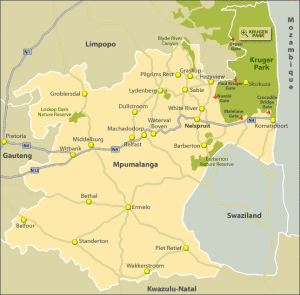IIDE Proceedings 2014 ~ Social Change in Our Technology-Based World ~ Contents & Preface and Acknowledgements
 Contents
Contents
Preface and Acknowledgements
Sytse Strijbos – Introduction: Social Change in our Technology-Based World
Michael Heyns – A Transcendental Inquiry into ‘Academic Capitalism in the New Economy’
Mark Rathbone – Corporate Social Responsibility, Deconstruction and Justice: A Response to Campbell Jones and Richard T De George
Attie van Niekerk – The Cultural Basis for a Sustainable Community in a South African Township
Lindile L. Ndabeni – The Informal Sector and Local Economic Developments in South Africa: An Evaluation of Some Critical Factors
Natallia Pashkevich, Darek M. Haftor – About IT Unemployment: Reflecting on Normative Aspects of the ‘Broken Link’
Darek M. Haftor, Erdelina Kurti – Toward Post Systems Thinking in the Conception of Whole-Part Relations
Fabian von Schéele, Darek M. Haftor – Cognitive Time Distortion as a Source of Risk in Economic Organizations: Conceptual Foundations
Anita Mirijamdotter, Mary Sommerville – Information -The ‘I’ in 21st Century Organizational IT Systems: An Informed Systems Methodology
Andrew Basden – A Dooyeweerdian Understanding of Affordance in Information Systems and Ecological Psychology
Maarten J. Verkerk – The Triple I model: A Translation of Dooyeweerdian Philosophical Concepts for Engineers
Darek M. Haftor – Dealing with Complexity: Some Critical Reflections upon Verkerk’s ‘Triple I Model’
Information about the International Institute for Development and Ethics
Information about the Annual Working Conferences
Preface and Acknowledgements
In 1995 an international and interdisciplinary research cooperation started, initially between researchers from some universities and institutions in Sweden and the Netherlands. In later years this initiative quickly expanded into a network of interested colleagues from the UK and South Africa. To summarize a long story in short: a stable core group with converging research interests was born that since then has operated fruitfully. The annual working conferences (AWC’s) have served as an international platform for researchers with a common interest for the use of Dooyeweerdian thinking in the interdisciplinary study for a broad range of issues regarding ‘technology and society’.
Looking back on the AWC 2014 we feel this international collaboration has again proven to be successful format. We take pride in hereby to present the final result of a wonderful conference with inspiring discussions and constructive input in each other’s research paper. All selected papers after the conference went through an intensive process of rewriting, based on the reports of the reviewers, and the instructions of the editors. While each chapter has been written as an independent piece of scholarly work, we hope that an introductory chapter authored by one of the editors is helpful for the reader to see the unity in diversity.
Finally, the editors wish to express their thanks to the authors, to each other for the collegial cooperation, and, last but not least, to Dr. Christine Boshuijzen – van Burken for her skilful management of the conference and the production process of these Proceedings.
The Editors
IIDE Proceedings 2014 ~ Introduction: Social Change In Our Technology-Based World
1. Introduction
This book contains the research papers presented and thoroughly discussed at the 19th Annual Working Conference of the IIDE held in May 2014. These conferences are a collaborative effort of senior researchers and PhD students from different universities in different countries with a shared interest in normative aspects of the ongoing development and social change of our technology-based world. An integrative framework has emerged in previous research collaboration that enables us to map the contributions from the various disciplines – such as philosophy, engineering, information systems, management science, systems thinking, and development studies – in a coherent vision. Therefore it is useful to introduce first this integrative framework before we present an overview of the papers.
2. Integrative framework
With slight exaggeration, one can say that change is the only constant factor in today’s society where everything is in flux – continuing change seems to be a basic condition for living in modern times. This extreme dynamics and even fluidity of society (Bauman 2000) is directly related to the complex of Science, Technology and Economy since the Industrial revolution of the 19th century in Europe. In the past decades the study of this complex has become a vast field of interdisciplinary research with many ramifications and approaches (see e.g., the Encyclopedia of Science, Technology and Ethics)
To understand social change in a technology-based society requires first of all a conceptualization of the main terms “technology” and “society”. One should realize however that in fact both terms are container concepts or collective names and do not refer to a specific object. Furthermore one has to be aware that by distinguishing between such a thing as “technology” on the one hand and “society” on the other, one might already start from a false view on technology, namely as something that is separate from society. Aiming for an integrative vision of technology and society one should take into account that technology is about people and thus part of society and not like a meteorite that impinges from outside on our human lives and society. “We know that technology does not determine society: it is society. Society shapes technology according to the needs, values, and interests of people who use the technology.” (Castells and Cardoso 2005: 3) Read more
IIDE Proceedings 2014 – A Transcendental Inquiry Into ‘Academic Capitalism In The New Economy’
The aim of this essay [i] is to investigate and evaluate the ideas transcendental to the notion of ‘academic capitalism in the new economy’. Ideas that will get attention are firstly structure and direction, which broadly indicate the nature that the analysis and evaluation of ‘academic capitalism in the new economy’ will take. A second and narrower focus on ‘academic capitalism in the new economy’ is to label this phenomenon as an idea-framework that moulds the universities of our times. A third distinction is to identify in the core of this framework the constitutive goods that particularly give structure and direction to the idea of the university. In the case of ‘academic capitalism in the new economy’, the concepts of ‘profit’ and ‘economic growth’ are identified as constitutive goods. It will be argued that this idea-anatomy prepares the arena for the deformation that sets in when the constitutive good of an entity like a university is not internal to that entity but instead a totalitarian constitutive good is imposed from outside.
1. Introduction
Lynch (2006:4-5) takes note of the phenomenon of ‘academic capitalism in the new economy’[ii] when she observes that “there is an ongoing movement to define education as a tradable service”, an undertaking which is very much part of the “ideology of the World Trade Organisation”. The reason for this, she says, is “quite simple”: It is estimated that in the year 2000 already, “education was a $2 trillion global industry” with the perspective that it has the potential for profitable returns among those who can afford to pay for it. More than six hundred “for-profit” higher education institutions were operating at that time, which should give a clear indication that for-profit trading in higher education is making huge strides forward. Rhoades and Slaughter (2004:37-38) report about the American situation that the profit motive is not only part of private ‘for-profit’ universities but that “the ascendance of neo-liberal and neo-conservative politics and policies” caused a shift in “government investment in higher education to emphasize education’s economic role and cost efficiency”. This leads to what they call “academic capitalism in the new economy”, which is the tendency where non-profit public universities also “develop, market and sell a wide range of products commercially in the private sector as a basic source of income”.
The justifiers of the neoliberal academic capitalism are disposed to link with the anti-ivory tower sentiment about universities. Charles Taylor points out that already in early modernism, Francis Bacon argued that science which is not in the service of bettering the plight of humanity, is without value. Bacon’s argument can be seen as the cradle of a “model of science whose criterion of truth would be instrumental efficacy” in the service of “the production of life in ever-greater abundance and the relief of suffering on an ever-wider scale” (Taylor 2003:104-105). According to this anti-ivory tower sentiment universities should link with the main concerns of society and not withdraw in practicing science for its own sake. A foremost issue of this nature for current society is the neoliberal emphasis on economic growth and profit and the application of the latter obsession, justified by the good-sounding notion of innovation in universities. Read more
IIDE Proceedings 2014 – Corporate Social Responsibility, Deconstruction And Justice: A Response To Campbell Jones And Richard T. De George
The purpose of this article [i] is to develop an experimental model of deconstruction in CSR in order to attempt to bridge the aporia between the CSR of Jones and De George. Jones advocates the importance of deconstruction in CSR, while De George is suspicious of the perceived relativism and undecidability of deconstruction. It will be argued that this perceived aporia between Jones and De George develops, because it is overlooked by both, that the normative foundation of deconstruction is rooted in the appearance of the other as a function of justice. The appearance of the other decentres business and challenges modernism’s fragmentation and reduction of reality. This is highlighted in Derrida’s deconstruction of the gift in which business is not only a commercial function, but linked to society as a whole and therefore has a responsibility as an agent of social transformation. Deconstruction in CSR will be illustrated in the case study of Royal Bafokeng Platinum.
1. Introduction
The debt crisis of 2008, corporate scandals and environmental disasters related to business activities have emphasised the importance of corporate social responsibility (CSR) as a means to encourage good corporate citizenship. Good corporate citizenship assumes that business has a responsibility in society. This means that business will not harm society or the environment and assist in transforming society. This can be done by business by means of using their wealth and expertise to improve the lives and circumstances of people and by addressing injustices like socio-economic inequality. Corporate citizenship affirms the complex nature of corporate responsibility that encompasses a wide range of stakeholders in the local and global context e.g. Stakeholder theory[ii] (Freeman 1984). In this context, some scholars have argued that deconstruction, and specifically the work of Jacques Derrida in terms of the ethics of irreducibility, responsibility and justice, may be insightful to CSR in the global business context of cultural and religious diversity by challenging the limits of traditional CSR (Rendtorff[iii] 2008, Jones 2007, Woermann[iv] 2013). Limits refer to the focus of deconstruction on the inability of language to articulate the full complexity of reality (Melchert 2011:700). The optimism that articulation is possible, is a legacy of the reductionist trend of modernism and science that is evident in traditional CSR (Woermann 2013:98). Traditional CSR is rooted in the assumption that profit is the main agenda of business and the focus of social responsibility and ethical decision-making. Therefore, universal normative foundations are required to provide homogenous and predictable outcomes that sustain the status quo. According to this view, business only has a commercial function in society and the interaction of a business with employees, clients, producers, shareholders and communities is ultimately to increase profits and has very little to do with justice and social transformation, except indirectly though compliance to legal and other demands of society. Thus, traditional CSR is a phenomenon of modern culture that perpetuates a reductionist and fragmented view of reality and society in which business mostly focusses on profit and compliance, as if business is not linked to all other aspects of society (Taylor 2003:1-12). This fragmentation does not imply that traditional CSR is redundant and irrelevant, or, that deconstruction is against traditional CSR. Deconstruction reveals that business is more intertwined with society and cannot be limited to profit-making alone, or that transformation is only the responsibility of government. Deconstruction uncovers the tensions within traditional CSR between business as commercial function and agent in social transformation. This tension is due to the fragmented view of reality of traditional CSR that limits business to profit-making, while excluding the possibility of other functions. This is highlighted by Derrida’s deconstruction of the gift that views business as a commercial enterprise and social institution for the benefit and transformation of society. Thus, deconstruction acknowledges the complex and socially connected status of business in society and that business is an agent of social transformation, amongst others. Read more
IIDE Proceedings 2014 ~ The Cultural Basis For A Sustainable Community In A South African Township
The article reflects on the cultural basis for building sustainable communities, based on research the writer carried out with the Nova Institute in four South African townships. Changes in personhood and the sense of community are discussed, with the focus on two aspects of traditional African culture: enjoying communication with others for its own sake, as described by Steve Biko, and becoming a person by fulfilling your duties to the community, as described by Polycarp Ikuenobe.
1. Introduction
Towards the end of June 2014, after five months, the strike of more than 70 000 workers at the platinum mines in the Rustenburg area came to an end. It was the longest labour strike in the country’s history. During these five months workers did not receive salaries, which resulted in hardship for them, their families and the businesses that depended on them. One of the mines is the Lonmin platinum mine at Marikana, where 34 miners were killed by the police during a strike in August 2012.
The communities around the mines represent a typical picture: in many parts of Africa people flood to cities, towns and huge industries and mines in search of work, and end up in sprawling informal settlements, or as it is popularly called, squatter camps. There is not enough work for all who come. In Africa urban populations have almost trebled in the past 50 years, with informal settlements or slums as the dominant form of urban growth (Sapa 2013).
A problem that has to be faced is that countless efforts to improve the quality of life in Africa have not been very successful. Martin Meredith, in his book The state of Africa, wrote that, since political independence, “… more than USD 500 billion of Western aid has been sunk into Africa, but with little discernible result”. To this figure must be added the income from resources such as oil and mines that did not benefit the vast majority of the population (Meredith 2005: 683).
In August 2014, Zimbabwean President Robert Mugabe became chairperson of the 15-member Southern African Development Community (SADC), where he is a popular figure. Mugabe has a policy of rejecting foreign aid from the West, and in his opening speech at the SADC he urged southern Africa to reduce its dependence on foreign aid (Munyaka 2014).
The question is: what resources, both material and immaterial, are available within Africa itself to improve the quality of life, especially of the poor? And how should we understand the popularity of Mugabe in the region’s official development institution, given the fact that he severely damaged the modern economy of his own country? Is there an understanding of what development should be that is different from the understanding of development in the West?
Not only politicians, but also academics plead for an approach that makes use of Africa’s own resources. In 1976 Wole Soyinka of Nigeria, who later won the Nobel Prize, pleaded for “the apprehension of a culture whose reference points are taken from within the culture itself …. African academia has created a deified aura around … intellectualism (knowledge and exposition of the reference points of colonial cultures). To the truly self-apprehending entity within the African world reality, this amounts to intellectual bondage and self-betrayal.” (Soyinka 1976: viii). And more recently Barry Hallen objected to the extension of a Western philosophical tradition into the African context: “Africa still waits to be discovered, to speak, to be understood” (cf Hallen 2009: 61, 62). Read more
IIDE Proceedings 2014 – The Informal Sector And Local Economic Developments In South Africa: An Evaluation Of Some Critical Factors
The importance of achieving the goals of a better life for all highlights a critical need to expand our economic development policy levers. Accordingly, the objective in this paper is to examine the critical link between informal sector and the challenges of development in South Africa. Given the heterogeneous nature of the sector, policy instruments aimed at developing the sector cannot be one size fits all. Finally, this paper reveals a number of concerns which can be addressed in future research including policy guidance and methodologies that can be used to incorporate gender into the overall planning of local economies.
1. Introduction
South Africa continues to face key development challenges of poverty, unemployment and inequality. Given the importance of achieving the goals of a better life for all South African citizens, there is a need to explore development alternatives which can lead to a more inclusive form of economic development and economic growth. More specifically, one of the economic sectors that has often been overlooked in economic policy analyses is the informal sector. The increased focus on informal sector is based on the observation that it employs a large number of people and therefore can contribute to poverty reduction. Again, the increased interest in the informal sector is partly driven by an observed increase in the size of the sector. For example, statistics highlight that between 1997 and 2005, about 1.1 million jobs were created in the informal sector (Altman, 2007). Typically, in 2007 it was estimated that there were 3,65 million people in non-agricultural informal employment in South Africa (Wills, 2009). Within the informal sector, street vending remains a dominant form of economic activity. It makes up 15 percent of non-agricultural informal employment, with over 500 000 street vendors in informal employment of whom about 360 000 were women (Wills, 2009). Consequently, the informal sector can be recognised for its role particularly in addressing the development challenges of poverty and unemployment. However, what needs to be recognised is that the informal sector remains largely neglected within the conventional policy making processes. Indeed, an improved understanding of the nature, workings and potential contribution of the informal sector is critical if we want to ensure a more inclusive form of economic development.
The objective in this paper is to examine the link between informal sector and the challenges of development in South Africa. Likewise, the contention in this paper is that improving the performance of informal sector may contribute to a more inclusive form of economic development. Therefore, the emphasis in this paper is to highlight the importance of expanding opportunities for those that continue to be marginalised within the national economic policy development. Overall, the efforts to improve the performance of informal sector should be seen in light of the potential contribution of the sector in increasing the overall performance of the national economy. Read more







